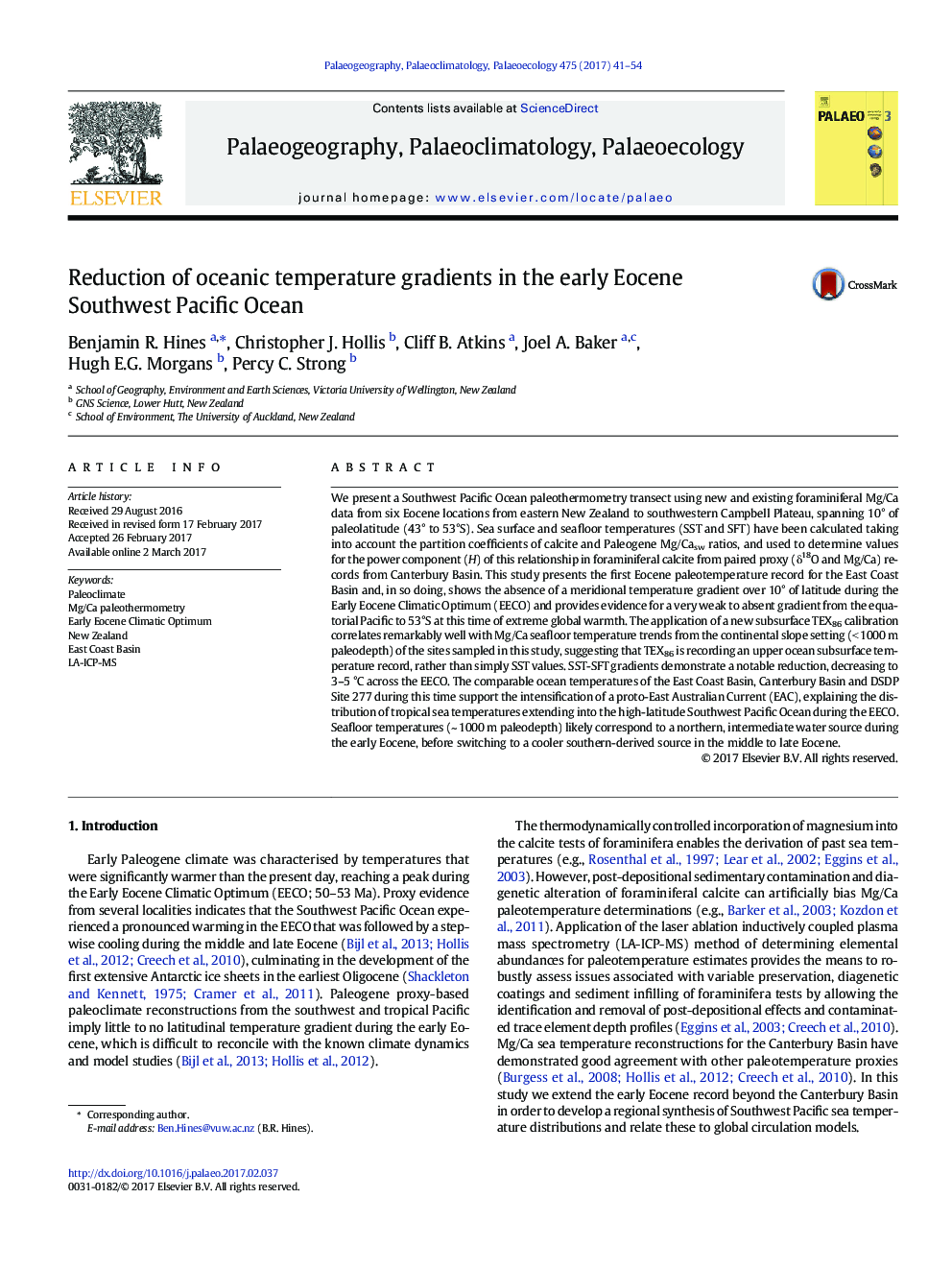| Article ID | Journal | Published Year | Pages | File Type |
|---|---|---|---|---|
| 5755673 | Palaeogeography, Palaeoclimatology, Palaeoecology | 2017 | 14 Pages |
Abstract
We present a Southwest Pacific Ocean paleothermometry transect using new and existing foraminiferal Mg/Ca data from six Eocene locations from eastern New Zealand to southwestern Campbell Plateau, spanning 10° of paleolatitude (43° to 53°S). Sea surface and seafloor temperatures (SST and SFT) have been calculated taking into account the partition coefficients of calcite and Paleogene Mg/Casw ratios, and used to determine values for the power component (H) of this relationship in foraminiferal calcite from paired proxy (δ18O and Mg/Ca) records from Canterbury Basin. This study presents the first Eocene paleotemperature record for the East Coast Basin and, in so doing, shows the absence of a meridional temperature gradient over 10° of latitude during the Early Eocene Climatic Optimum (EECO) and provides evidence for a very weak to absent gradient from the equatorial Pacific to 53°S at this time of extreme global warmth. The application of a new subsurface TEX86 calibration correlates remarkably well with Mg/Ca seafloor temperature trends from the continental slope setting (< 1000 m paleodepth) of the sites sampled in this study, suggesting that TEX86 is recording an upper ocean subsurface temperature record, rather than simply SST values. SST-SFT gradients demonstrate a notable reduction, decreasing to 3-5 °C across the EECO. The comparable ocean temperatures of the East Coast Basin, Canterbury Basin and DSDP Site 277 during this time support the intensification of a proto-East Australian Current (EAC), explaining the distribution of tropical sea temperatures extending into the high-latitude Southwest Pacific Ocean during the EECO. Seafloor temperatures (~ 1000 m paleodepth) likely correspond to a northern, intermediate water source during the early Eocene, before switching to a cooler southern-derived source in the middle to late Eocene.
Keywords
Related Topics
Physical Sciences and Engineering
Earth and Planetary Sciences
Earth-Surface Processes
Authors
Benjamin R. Hines, Christopher J. Hollis, Cliff B. Atkins, Joel A. Baker, Hugh E.G. Morgans, Percy C. Strong,
